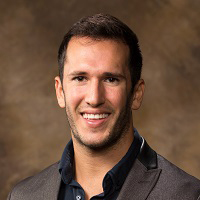Research Finds Higher Private School Share Directly Linked to Higher Test Scores, Stronger Human Rights Internationally
With the controversial nomination of Betsy DeVos for U.S. Secretary of Education, the concept of school choice has received increasing attention. Supporters and opponents of the concept have made bold claims about the effect of such programs on student outcomes and society in general. Theoretically, increased access to private school choice could improve educational quality through competitive pressures and an improved match between educator and student. An enhanced educational experience could lead to enriched cognitive abilities, as measured by test scores, and higher standards of living, as measured by political and economic freedom indices.
In two new studies (here and here), we estimate the effects of private school market share on Programme for International Student Assessment (PISA) scores, political rights indices, and economic freedom indices within over 60 countries over time. We find that increases in private schooling produce considerably large gains in student test scores and living standards.
Causal Impacts of Private Schooling
Most studies examining effects of private schooling suffer from failing to establish whether private schooling actually causes the outcomes. After all, families choose to send their children to private schools, so it is often unclear what is really causing the observed outcomes. Our studies use advanced statistical methods (here and here) to determine the actual effects of private schooling on test scores and standards of living.
Improved Test Scores and Better Lives
Our studies both find significant evidence to suggest that increases in the private share of schooling within a country over time improve PISA scores, political rights and economic freedom. Specifically, we find that a 10-percentage-point increase in private schooling within a nation leads to around a 16-point increase in math scores and a 12-point increase in reading scores. According to previous scientific estimates, these learning gains would translate to more than a 13 percent gain in lifetime earnings, or more than $150,000.
In 2015, the United States ranked 35th in math and 24th in reading. If the United States had experienced a 16-point increase in math and a 12-point increase in reading, the nation would have ranked around 28th in math (with a score similar to Luxembourg) and around 12th in reading (with a score similar to New Zealand).
Perhaps more importantly, we find that the same increase in private schooling leads to significantly large increases in the Economic Freedom of the World Index and the Political Rights index within a country. These two indices, based on objective measures, are assembled by a team of experts and reported for over 150 countries each year. The United States was in 16th place according to the 2014 Economic Freedom of the World rankings, but the impact that we observed would have moved the nation up to 14th. These results are especially notable considering researchers found that this particular index is strongly associated with higher levels of what we all want more than anything: happiness.
While the strength of the theoretical arguments around school choice are uncertain, our results are quite clear: Access to private schooling around the world enhances the lives of individual students and the societies in which they reside.





